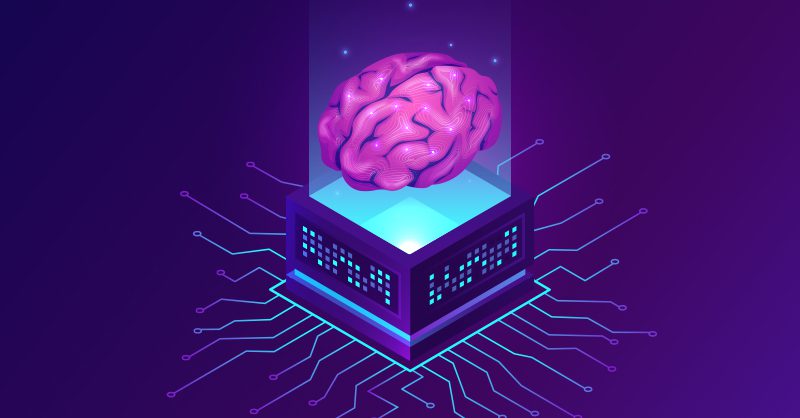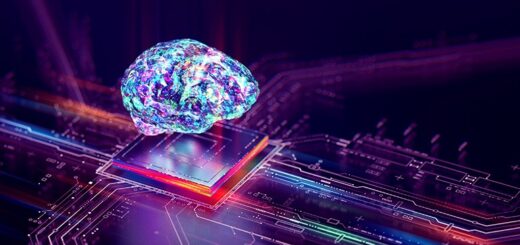The Growing Role of AI in a Rapidly Changing World

Artificial Intelligence (AI) has been a driving force behind technological advancements over the past decade, but its impact has become even more evident in recent months. As businesses, governments, and researchers adapt to an increasingly digital world, AI is playing a crucial role in automation, decision-making, and crisis response.
From breakthroughs in natural language processing (NLP) to AI’s expanding role in healthcare, business, and cybersecurity, we are witnessing a rapid evolution in the way intelligent systems interact with society. In this article, we will explore the latest AI trends, how AI is reshaping industries, and what these changes mean for the future.
1. AI’s Role in Global Crisis Management
The first half of 2020 has been a period of global uncertainty, with AI emerging as a powerful tool in public health and crisis response. AI-driven technologies have been assisting researchers, optimizing logistics, and combating misinformation.
- AI in Medical Research: Machine learning algorithms have been used to analyze genetic data, predict the spread of diseases, and accelerate drug discovery. AI-powered tools like DeepMind’s AlphaFold have helped researchers understand protein structures critical for vaccine development.
- AI-Powered Chatbots for Public Health: Governments and healthcare organizations have deployed AI-driven chatbots to answer public health questions, reducing the burden on human call centers. Virtual assistants like IBM Watson Assistant for COVID-19 have been widely used to provide accurate information.
- Predictive Analytics for Supply Chain Management: AI has been instrumental in forecasting supply chain disruptions and ensuring the efficient distribution of medical supplies and essential goods. Companies are using AI-driven models to predict demand, optimize logistics, and reduce shortages.
AI’s ability to process large datasets, identify patterns, and automate responses has made it an essential tool in crisis management. The lessons learned from these applications will shape future AI-driven public health initiatives.
2. Advancements in Natural Language Processing (NLP): The Evolution of AI Conversations
Natural Language Processing (NLP) has made significant progress, with AI models becoming more capable of understanding, generating, and responding to human language. The release of GPT-2 in late 2019 paved the way for more sophisticated text-generation models, and now, in mid-2020, researchers are pushing the boundaries of what AI can achieve.
A. AI in Customer Service and Virtual Assistants
- AI-driven chatbots are becoming more conversational, context-aware, and accurate, improving customer interactions.
- Companies are integrating voice assistants powered by AI into their customer service operations to handle complex queries with minimal human intervention.
- AI-powered tools like Google Duplex are demonstrating how AI can engage in natural conversations over the phone, scheduling appointments and handling reservations.
B. AI-Generated Content: The Rise of AI-Written Text
- AI models are being used to generate news summaries, product descriptions, and even creative writing.
- While AI-generated content is impressive, concerns remain about misinformation and the ethical implications of AI-written articles.
With NLP continuing to advance, AI’s ability to interact with humans is becoming more refined, opening up new possibilities for AI-driven communication.
3. AI in Business: Automation and Smart Decision-Making
As companies navigate an increasingly digital world, AI is helping optimize decision-making, automate tasks, and improve operational efficiency.
- AI-Powered Predictive Analytics: Businesses are using AI to forecast market trends, consumer behavior, and financial risks, allowing for more informed decision-making.
- Robotic Process Automation (RPA): AI-driven automation is streamlining administrative and repetitive tasks, freeing employees to focus on higher-value work.
- AI in Cybersecurity: With an increase in digital transactions and remote work, AI-driven threat detection models are helping companies defend against cyber threats and fraud.
Businesses that adopt AI-driven strategies are gaining a competitive edge, leveraging automation to reduce costs and increase efficiency.
4. AI Ethics and the Growing Call for Responsible AI
With AI’s expanding influence, there is a growing discussion about ethical AI development and deployment. While AI is enhancing industries, concerns over bias, fairness, and accountability are becoming more pressing.
- Algorithmic Bias and Fairness: AI models have been found to reflect biases in training data, leading to unintended discrimination in hiring, lending, and law enforcement.
- Transparency and Explainability: AI-driven decisions often operate as a black box, making it difficult for users to understand why certain choices were made.
- AI Regulation and Governance: Governments and organizations are beginning to propose regulations and ethical guidelines to ensure AI is used responsibly.
As AI continues to integrate into critical decision-making processes, it is essential for researchers and developers to prioritize fairness, transparency, and accountability.
5. The Future of AI: What’s Next?
As we look ahead, AI is set to become even more embedded in our daily lives, influencing industries such as healthcare, education, and business. Some key areas of future development include:
- AI-Powered Personalization: AI-driven recommendation systems will continue to improve, providing users with more tailored experiences in entertainment, e-commerce, and online learning.
- Advances in AI Creativity: AI-generated art, music, and writing will continue to evolve, blurring the line between human and machine creativity.
- More Efficient AI Models: Researchers are working on making AI models less resource-intensive, reducing the computational power and energy required to train large neural networks.
AI’s potential is limitless, but its success will depend on how responsibly and ethically it is developed and applied.
Final Thoughts: AI’s Role in an Uncertain World
As we move further into 2020, AI is proving to be a crucial tool in innovation, automation, and crisis response. Whether it’s helping researchers fight pandemics, businesses make smarter decisions, or improving the way we interact with technology, AI’s influence is growing.
However, as AI becomes more powerful, ethical considerations, data privacy, and fairness must remain at the forefront of discussions. Researchers, businesses, and policymakers must work together to ensure AI is used for the benefit of all.
The AI landscape is evolving rapidly, and the innovations happening today will define the next decade of human-AI collaboration. One thing is certain—AI is here to stay, and its impact will continue to shape our world in ways we are only beginning to understand.




